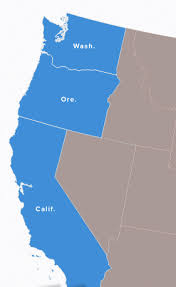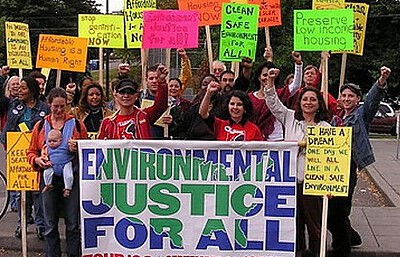California
Environmental Justice and Climate Action
Are the two in conflict? What should we make of the attacks on Mary Nichols?
Mary Nichols, the frontrunner to head EPA, was knocked out of contention earlier this week. She would have been a formidable choice to implement Biden’s climate policies. For that reason, it wasn’t clear whether she would have the votes to get through the narrowly divided Senate. But she was ultimately taken down by the fierce …
Continue reading “Environmental Justice and Climate Action”
CONTINUE READINGClimate Action on the West Coast
Three liberal states with very different climate records.
Although California, Oregon, and Washington are often considered liberal bastions, they differ widely in how much they’ve been able to do in climate policy. The scale of their responses has been pretty much proportional to how much of their populations are urban, with conservative rural areas in each state that resist climate action. California. California …
Continue reading “Climate Action on the West Coast”
CONTINUE READINGCalifornia’s Environmental Justice Policies Should Serve as A Model for the Biden-Harris Administration
AB 617’s Program to Reduce Hot Spot Pollution, Port Programs, Zero Emission Trucks Could Go National
No Presidential ticket has come into office more committed to environmental issues than President-elect Joe Biden and Vice President-elect Kamala Harris. Appropriately, climate change is at the top of their agenda. They are also committed to advancing environmental justice by addressing the disproportionate environmental harms many low income communities of color face. California is often …
CONTINUE READINGPresident Biden & Climate Change: What’s Achievable?
Divided federal government might still allow possibility for meaningful action
With a victory in the presidential election, Joe Biden now faces a U.S. Senate that still hangs in the balance. But even with a Democratic runoff sweep in Georgia next month, it will be very divided. So what will be possible for a President Biden and his administration to achieve on climate change? Agency action, …
Continue reading “President Biden & Climate Change: What’s Achievable?”
CONTINUE READINGClimate Candidates Notch Victories in Major City Council Races Across Western U.S.
Voters choose new candidates with strong climate platforms in Los Angeles, Phoenix, San Diego, and other large cities across the West
While ballot counting continues across the country, city council races are now being called, with new climate champions set to take office in large Western U.S. cities that held elections this week. Many of the victors are taking on their first elected positions. Candidates with inspiring and ambitious climate platforms notched victories in six large …
CONTINUE READINGWhat Next for Climate Policy?
The election outcome is still contested. Here are three possible scenarios.
We probably won’t be sure for a while who will be our next President. The GOP will probably control the Senate but even that isn’t completely certain yet. Rather than play forecaster, I thought it would be helpful to look at how various outcomes will impact climate policy. Since we’re all suffering a lot of …
Continue reading “What Next for Climate Policy?”
CONTINUE READINGDriving Sustainable Energy Storage Technology
Maximizing the Environmental Utility of Battery Storage: Building a Life Cycle Assessment Framework
Battery energy storage is recognized as a key element of making our energy infrastructure more sustainable and resilient. Battery storage, however, encompasses many technologies–how should sustainability-minded agencies, utilities and storage developers choose among these options? UCLA’s Emmett Institute and the UCLA Institute of the Environment and Sustainability is hosting an interactive workshop on that question …
Continue reading “Driving Sustainable Energy Storage Technology”
CONTINUE READINGGuest Contributor Samantha Zurcher: The Current State of Wildfire Liability in California
Wildfires Are Ravaging California. Can Electric Utilities Take the Heat?
In recent years, California has experienced its largest and deadliest wildfires in history, resulting in hundreds of fatalities and more than $50 billion in damage. The confluence of rising temperatures, less rainfall, and strong winds signal that the annual “wildfire season” is here to stay, and will continue to proliferate. Every year, thousands of Californians …
CONTINUE READINGNewsom’s Gas Car Phaseout is a Big Step Forward for California
A long road ahead, but undoubtedly moving in the right direction
On Wednesday, Governor Newsom issued an executive order that, among other things, directed the California Air Resources Board to develop regulations moving the state to 100 percent zero-emission passenger vehicles by 2035. The order is a long way from taking effect–at a minimum, ARB’s rulemaking process will take many months, any regulations would involve a …
Continue reading “Newsom’s Gas Car Phaseout is a Big Step Forward for California”
CONTINUE READINGChina’s New 2060 Carbon Neutrality Target
New climate pledges from China and the EU make the U.S. the only jurisdiction among the top three emitters without a carbon neutrality target
The biggest climate policy announcement of the week was not California Gov. Newsom’s Executive Order to ban the in-state sale of gas-powered passenger cars and trucks by 2035, although this move is a major advance for climate policy. Rather, the most important climate news was China’s announcement of an “aim” of achieving carbon neutrality by …
Continue reading “China’s New 2060 Carbon Neutrality Target”
CONTINUE READING











